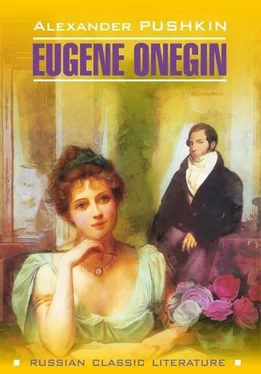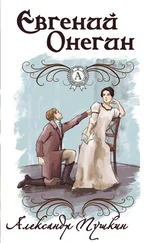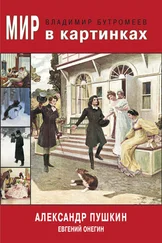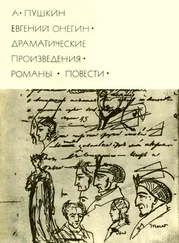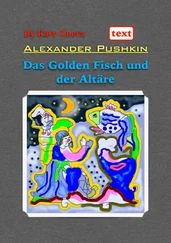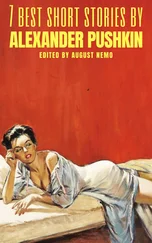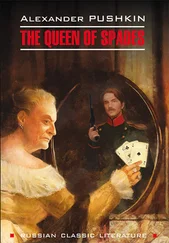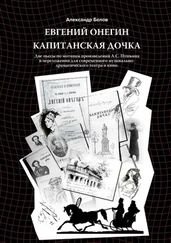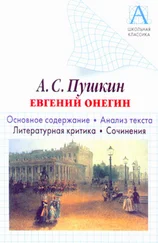Alexander Pushkin
Eugene Onegin
© КАРО, 2017
Все права защищены
Pétri de vanité, il avait encore plus de cette espèce d’orgueil, qui fait avouer avec la même indifférence les bonnes comme les mauvaises actions, suite d’un sentiment de superiorité, peut-être imaginaire.
Tiré d’une lettre particulière.
‘He rushes at life and exhausts the passions.’
Prince Viazemski
“My uncle’s goodness is extreme,
If seriously he hath disease;
He hath acquired the world’s esteem
And nothing more important sees;
A paragon of virtue he!
But what a nuisance it will be,
Chained to his bedside night and day
Without a chance to slip away.
Ye need dissimulation base
A dying man with art to soothe,
Beneath his head the pillow smooth,
And physic bring with mournful face,
To sigh and meditate alone:
When will the devil take his own!”
Thus mused a madcap young, who drove
Through clouds of dust at postal pace,
By the decree of Mighty Jove,
Inheritor of all his race.
Friends of Liudmila and Ruslan [1] Ruslan and Liudmila , the title of Pushkin’s first important work, written 1817–1820. It is a tale relating the adventures of the knight-errant Ruslan in search of his fair lady Liudmila, who has been carried off by a kaldoon, or magician.
,
Let me present ye to the man,
Who without more prevarication
The hero is of my narration!
Onegin, O my gentle readers,
Was born beside the Neva, where
It may be ye were born, or there
Have shone as one of fashion’s leaders.
I also wandered there of old,
But cannot stand the northern cold [2] Written in Bessarabia.
.
Having performed his service truly,
Deep into debt his father ran;
Three balls a year he gave ye duly,
At last became a ruined man.
But Eugene was by fate preserved,
For first “madame” his wants observed,
And then “monsieur” supplied her place [3] In Russia foreign tutors and governesses are commonly styled “monsieur” or “madame”.
;
The boy was wild but full of grace.
“Monsieur l’Abbé,” a starving Gaul,
Fearing his pupil to annoy,
Instructed jestingly the boy,
Morality taught scarce at all;
Gently for pranks he would reprove
And in the Summer Garden rove.
When youth’s rebellious hour drew near
And my Eugene the path must trace —
The path of hope and tender fear —
Monsieur clean out of doors they chase.
Lo! my Onegin free as air,
Cropped in the latest style his hair,
Dressed like a London dandy he
The giddy world at last shall see.
He wrote and spoke, so all allowed,
In the French language perfectly,
Danced the mazurka gracefully,
Without the least constraint he bowed.
What more’s required? The world replies,
He is a charming youth and wise.
We all of us of education
A something somehow have obtained,
Thus, praised be God! a reputation
With us is easily attained.
Onegin was – so many deemed
[Unerring critics self-esteemed],
Pedantic although scholar like,
In truth he had the happy trick
Without constraint in conversation
Of touching lightly every theme.
Silent, oracular ye’d see him
Amid a serious disputation,
Then suddenly discharge a joke
The ladies’ laughter to provoke.
Latin is just now not in vogue,
But if the truth I must relate,
Onegin knew enough, the rogue
A mild quotation to translate,
A little Juvenal to spout,
With “vale” finish off a note;
Two verses he could recollect
Of the Aeneid, but incorrect.
In history he took no pleasure,
The dusty chronicles of earth
For him were but of little worth,
Yet still of anecdotes a treasure
Within his memory there lay,
From Romulus unto our day.
For empty sound the rascal swore he
Existence would not make a curse,
Knew not an iamb from a choree,
Although we read him heaps of verse.
Homer, Theocritus, he jeered,
But Adam Smith to read appeared,
And at economy was great;
That is, he could elucidate
How empires store of wealth unfold,
How flourish, why and wherefore less
If the raw product they possess
The medium is required of gold.
The father scarcely understands
His son and mortgages his lands.
But upon all that Eugene knew
I have no leisure here to dwell,
But say he was a genius who
In one thing really did excel.
It occupied him from a boy,
A labour, torment, yet a joy,
It whiled his idle hours away
And wholly occupied his day —
The amatory science warm,
Which Ovid once immortalized,
For which the poet agonized
Laid down his life of sun and storm
On the steppes of Moldavia lone,
Far from his Italy – his own.
How soon he learnt deception’s art,
Hope to conceal and jealousy,
False confidence or doubt to impart,
Sombre or glad in turn to be,
Haughty appear, subservient,
Obsequious or indifferent!
What languor would his silence show,
How full of fire his speech would glow!
How artless was the note which spoke
Of love again, and yet again;
How deftly could he transport feign!
How bright and tender was his look,
Modest yet daring! And a tear
Would at the proper time appear.
How well he played the greenhorn’s part
To cheat the inexperienced fair,
Sometimes by pleasing flattery’s art,
Sometimes by ready-made despair;
The feeble moment would espy
Of tender years the modesty
Conquer by passion and address,
Await the long-delayed caress.
Avowal then ’twas time to pray,
Attentive to the heart’s first beating,
Follow up love – a secret meeting
Arrange without the least delay —
Then, then – well, in some solitude
Lessons to give he understood!
How soon he learnt to titillate
The heart of the inveterate flirt!
Desirous to annihilate
His own antagonists expert,
How bitterly he would malign,
With many a snare their pathway line!
But ye, O happy husbands, ye
With him were friends eternally:
The crafty spouse caressed him, who
By Faublas in his youth was schooled [4] Les Aventures du Chevalier de Faublas , a romance of a loose character by Jean Baptiste Louvet de Couvray (1760–1797), famous for his bold oration denouncing Robespierre, Marat and Danton.
,
And the suspicious veteran old,
The pompous, swaggering cuckold too,
Who floats contentedly through life,
Proud of his dinners and his wife!
One morn whilst yet in bed he lay,
His valet brings him letters three.
What, invitations? The same day
As many entertainments be!
A ball here, there a children’s treat,
Whither shall my rapscallion flit?
Whither shall he go first? He’ll see,
Perchance he will to all the three.
Meantime in matutinal dress
And hat surnamed a “Bolivar” [5] À la “Bolivar”, from the founder of Bolivian independence.
He hies unto the “Boulevard,”
To loiter there in idleness
Until the sleepless Breguet chime [6] M. Breguet, a celebrated Parisian watchmaker – hence a slang term for a watch.
Announcing to him dinner-time.
Читать дальше
